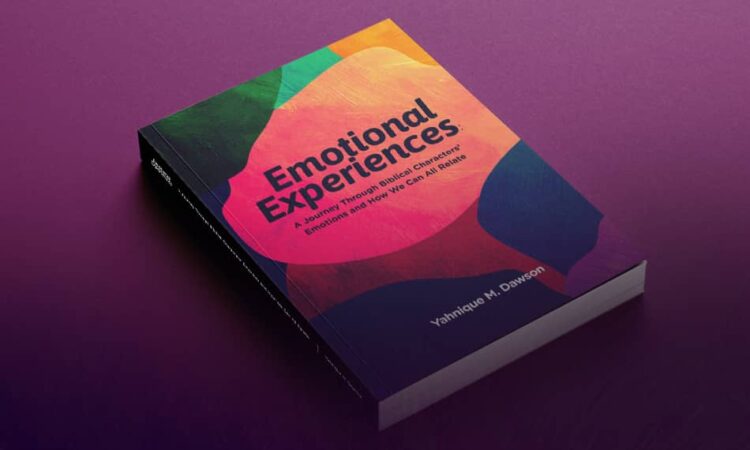
It is a well-known fact that emotions are linked to our thoughts, decisions and behaviors. Cognitive-behavioral schools and interpersonal therapies1 emphasize the importance of emotional-work and how vital it is to deal with emotions associated with problematic behaviors. This is because emotions often play a significant role in what behaviors are expressed and which decisions are made most especially among the youth. Being unable to regulate emotions effectively or lacking emotional resilience often leads to many unhealthy choices related to substance abuse, teenage pregnancy, violence, and crime which are issues experienced by the U.S. youth today.
According to the “Monitoring the Future” survey on American adolescents funded by the National Institute on Drug Abuse, 10.9% of eight graders, 19.8% of 10th graders, and 31.12% of 12th graders have reported illicit drug usage in 20232. Substance abuse is a major detriment to youth and most often leads to declines in academic performance, truancy issues, risk of injury, transmission of sexual infections, and possible involvement with the criminal justice system among others3.
Source: National Institute on Drug Abuse (2023)
Although teenage pregnancy in the U.S. had dropped from 13.9 per 1,000 females to 13.5 per 1,000 females in 20224, it is still a major issue that leads to substantial challenges for both the teenage mother and her child. Some adverse effects include having a lower chance to finish schooling and mental health-related problems for the mother; behavioral problems, higher rate of foster care placement, and lower school achievement are also possible consequences for the child5. Furthermore, data from various sources such as the National Crime Victimization Survey (NCVS) and the Federal Bureau of Investigation demonstrates that serious violent crime offending rates among American adolescents aged 12-17 years of age were 5 crimes per 1,000 juveniles involving offenses such as assault and robbery6. Related to violence is a significant rise in the occurrence of bullying; a 2022 survey of American teens reported that almost half (46%) experienced being cyberbullied while in 2019-2020 the survey reported that only around 2 in ten middle and high school students (22%) were bullied offline7.
Source: PEW Research Center (2022)
These anti-social behaviors negatively impact the youth’s development with the perpetrators being likely to do more violent offenses growing up, having substance abuse problems, and other forms of maladjustment. Being the target of bullying also leads to physical health consequences such as risk for injury, sleep disturbances, and even psychosomatic symptoms. Psychological consequences of being bullied also include internalizing symptoms such as depression, anxiety, addiction, self-harming behavior and withdrawal from others8.
It is believed that problematic behaviors among the youth can be traced back to difficulties in regulating their emotions and a general lack of Emotional Experience (EE). Defined, emotional experience is anterior knowledge and feelings associated with having lived through a similar situation in the past. Unhealthy lifestyle choices stem from the lack of these emotional experiences because without these, the youth may not accurately gauge the long-term consequences of the decisions they are making. Supporting this, the UCLA Center for the Developing Adolescent links healthy emotion regulation skills with better decision making, lowers high-risk behaviors, and more positive developmental outcomes which may be modeled from parents and other caring adults9. By providing an avenue where youth can explore emotional experiences in a safe environment, emotional regulation skills can be developed which positively affects their perceptions and decision-making.
Within the counseling field, one of the tools most useful in exploring emotional experiences is dramatherapy. The aim of dramatherapy is to enhance emotional and social functioning through the use or role-play, theatre, short plays and other creative expressions to delve deeper into psychological issues. Through a collection of short plays and accompanying reflection questions based on Cognitive Behavioral Therapy, the youth are safely guided through their emotional experience allowing them to make better decisions when faced with actual real-life situations. The issues explored by these short plays start conversations on a variety of subjects youth face where crucial decisions need to be made, such as drug use, bullying, self-harm, promiscuity and peer relationships allowing the youth to engage in self-reflection. Moreover, by teaching the youth how to respond when put in these situations, they would be more likely to navigate these experiences in a healthy manner and form positive coping skills. For instance, in scenarios where there is a pressure to use illicit drugs, the youth involved will learn to navigate the emotions that arise in that situation, learn creative methods of saying “NO” effectively, know how to maintain firm boundaries especially when emotional conflict and peer pressure ensue, and how to communicate their expectations in a respectful manner.
These guided, experiential activities are very effective in developing emotional experience and emotional resilience among the youth. It also encourages more authentic classroom discussions related to these issues. These engaging activities allow the youth to do more than just sit down and listen – they experience real-life situations without any true risk being presented. It is also hoped that through these activities, the students learn not only from their own experiences but from other peers as well. Creative use of dramatherapy and its techniques allows for several positive effects such as playfulness, connecting the inner and outer world, changing maladaptive coping styles, and overall transformative change10. Through modelling and dramatherapy techniques, it is hoped that students acquire emotional experiences and resilience that will help them be well in school and in life as they continue their journey to becoming active, productive and positive members of the community.
References
- Nisha, C. & Manjula, Munivenkatappa. (2014). Emotions and psychotherapy: tracing the prevailing trends. Andhra Pradesh Journal of Psychological Medicine. Vol. 15 2014. 170-178. 10.4103/2589-9171.227723.
- National Institute on Drug Abuse (2023). Reported drug use among adolescents continued to hold below pre-pandemic levels in 2023. Retrieved from: https://nida.nih.gov/news-events/news-releases/2023/12/reported-drug-use-among-adolescents-continued-to-hold-below-pre-pandemic-levels-in-2023#:~:text=The%20percentage%20of%20adolescents%20reporting,to%20the%20latest%20results%20from
- Center for disease control and prevention (2022). High risk substance use among youth. Retrieved from: https://www.cdc.gov/healthyyouth/substance-use/index.htm
- ABC news (2023). Teenage birth rates in the US reached historic lows in 2022, CDC report finds. Retrieved from: https://abcnews.go.com/Health/teenage-birth-rates-us-reached-historic-lows-2022/story?id=99720479
- Youth.gov (n.d.) The adverse effects of teenage pregnancy. Retrieved from: https://youth.gov/youth-topics/pregnancy-prevention/adverse-effects-teen-pregnancy
- Childstats (2023). Youth perpetrators of serious violent crimes. Retrieved from: https://www.childstats.gov/americaschildren/beh5.asp
- Pew Research Center (2023). 9 facts about bullying. Retrieved from: https://www.pewresearch.org/short-reads/2023/11/17/9-facts-about-bullying-in-the-us/
- National Academies of Sciences, Engineering, and Medicine. (2016). Preventing Bullying Through Science, Policy, and Practice. Washington, DC: The National Academies Press. doi: 10.17226/23482. Retrieved from: https://www.ncbi.nlm.nih.gov/books/NBK390414/#sec_000082
- UCLA Center for the developing adolescent (n.d.) Decision making and emotional regulation. Retrieved from: https://developingadolescent.semel.ucla.edu/core-science-of-adolescence/decision-making-emotional regulation#:~:text=Emotional%20regulation%20supports%20decision%20making,who%20need%20extra%20emotional%20support.
- Gruijter E, Wouters H, Haeyen S (2024). Perceived effects of drama therapy in people diagnosed with personality disorders: A qualitative study. Retrieved from: https://www.sciencedirect.com/science/article/pii/S0197455624000029#section-cited-by




